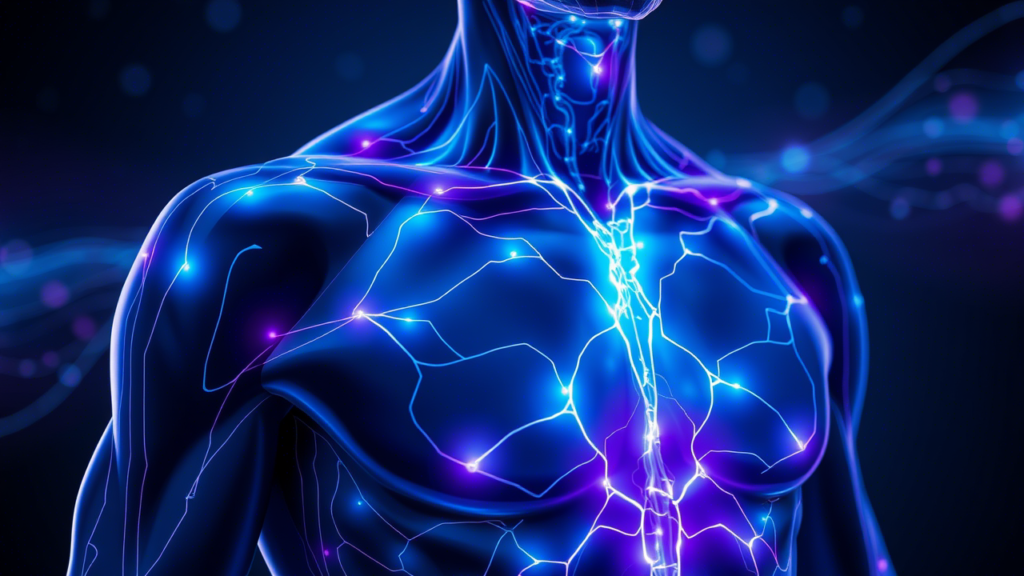Did You Know Your Body’s a Calorie-Burning Machine?
Bet you didn’t know this: your body burns calories just to keep you alive—like, 60% of them, even if you’re napping on the couch. Wild, right? I stumbled onto that fact about ten years back when I was stuck in a desk job, feeling sluggish and watching the scale creep up despite barely eating.
Back then, I thought metabolism was some mysterious thing I couldn’t control. But digging into it—through books, podcasts, and a lot of kitchen experiments—changed everything for me. I dropped 20 pounds and got my energy back, all without starving myself.
Here’s the deal: there’s so much more to metabolism than “eat less, move more.” Stick with me, and you’ll uncover some quirky science and practical hacks I’ve tested myself. By the end, you’ll know how to nudge your body into burning fat and pumping out energy like it’s your job.
What Is Metabolism and Why Should You Care?
Okay, let’s break it down. Metabolism’s just your body turning food into energy—like a little furnace running 24/7. It powers everything: breathing, thinking, even digesting that sandwich you just ate.
The kicker? **It’s tied directly to how you gain or lose weight.** Your basal metabolic rate (BMR)—that’s the calories you burn at rest—makes up most of it. For me, learning my BMR was around 1,400 calories a day was a lightbulb moment.
Why care? Because if you get how it works, you can tweak it. Harvard Health says it’s not set in stone—stuff like muscle and habits can shift it. And trust me, that’s a game-changer when you’re tired of feeling tired.
| Metabolism Component | What It Does | % of Daily Calories |
|---|---|---|
| BMR (Basal Metabolic Rate) | Keeps you alive (heart, lungs, etc.) | 60-70% |
| Physical Activity | Moving, exercising, fidgeting | 20-30% |
| Thermic Effect of Food (TEF) | Digesting your meals | 10% |
The Biggest Factors Messing with Your Metabolism
Age hits hard—I felt it after 30. Your muscle mass starts dipping, and that slows your BMR. NIH says it drops about 1-2% per decade, which explains why my jeans got tight despite no big lifestyle change.
Hormones are sneaky too. Stress spikes cortisol, and that can tank your metabolism while making you crave junk. I noticed it big-time when I was juggling deadlines—hello, muffin top.
Lifestyle’s the third piece. Skimp on sleep or sit all day, and your body slows down to save energy. Dr. Kevin Hall once said, “Your body makes automatic compensatory changes to maintain energy balance.” That’s why crash diets backfired for me—they just made me hungrier.
- Age: Muscle loss slows BMR over time.
- Hormones: Cortisol and insulin mess with fat burning.
- Lifestyle: Sleep and movement are non-negotiable.
How to Boost Your Metabolism Naturally (No Gimmicks)
Eating’s my favorite hack. Protein’s a star—Harvard says it takes 20-30% of its calories just to digest, way more than carbs at 5-10%. I started swapping rice for chicken, and I swear I felt perkier.
Moving’s next. High-intensity interval training (HIIT) torched calories for me way faster than jogging—think 20 minutes of sprint-walking. Bonus: it builds muscle, which keeps your BMR humming.
Sleep’s the secret weapon. I used to pull all-nighters, but once I hit seven hours, my cravings dropped. Dr. Jason Fung puts it best: “Fasting can reset your metabolism if done right”—and good sleep’s a mini-fast every night.
| Food Type | Thermic Effect (% of Calories) | Example Boost |
|---|---|---|
| Protein | 20-30% | Chicken, eggs |
| Carbs | 5-10% | Rice, bread |
| Fats | 0-3% | Butter, oils |
Oh, and here’s a weird one: cold showers. They jolt your system into burning more calories to warm up. I tried it for a month—hated every second, but my energy spiked.
Real-Life Tricks for Weight and Energy That Actually Work
Here’s where it gets personal. Back in 2015, I was wiped out—low energy, up 20 pounds, the works. I started small: swapped soda for water with lemon, added a 10-minute walk after lunch.
Biggest win? Meal timing. Eating protein early kept me full, and skipping late-night snacks gave my body a break. The book Master Your Metabolism clued me into this—it’s all about syncing food with your body’s rhythm.
One trick I love: spicy food. A dash of cayenne in my soup revs up my system—studies say capsaicin boosts metabolism a bit. It’s not magic, but it adds up.
- Start your day with protein (eggs over cereal).
- Walk after meals—10 minutes does it.
- Cut snacks after 8 p.m. for a mini-reset.
Busting Metabolism Myths You’ve Probably Heard
“Slow metabolism means you’re doomed to gain weight.” Nope—not true. Sure, some folks burn less at rest, but activity and habits can outweigh that.
Another one: “Eating less speeds it up.” Ha, I tried that—lost five pounds, then crashed hard. NIH says crash diets slow your metabolism to save energy, not boost it.
Here’s an oddball myth: skinny people have fast metabolisms. Turns out, bigger bodies burn more at rest—my 200-pound friend’s BMR beats mine by 300 calories. Crazy, right?
Master Your Metabolism digs into this stuff too—showing how myths trip us up. It’s less about fate and more about what you do every day.
What’s Next for Your Metabolism Journey?
Look, metabolism’s not a mystery anymore—you’ve got the basics now. Protein, movement, sleep—they’re your levers to pull. I’ve seen it work for me, and the science backs it up.
Things are shifting out there—research keeps finding new quirks, like how gut bugs might play a role. Stick with the simple stuff, and you’ll be ahead of the curve.
So, what’s your first move? Maybe a spicy breakfast tomorrow—or just an extra hour of sleep tonight?
